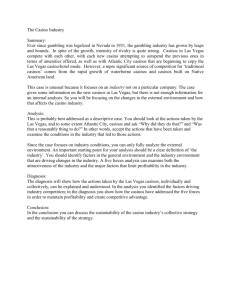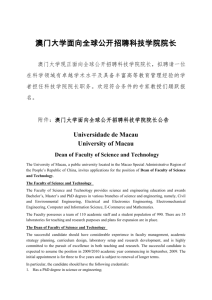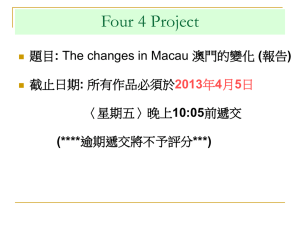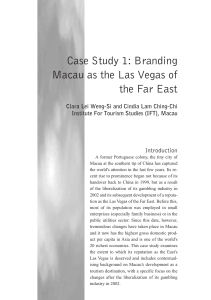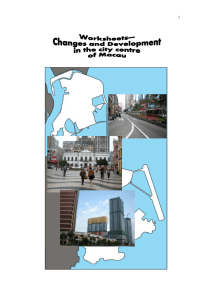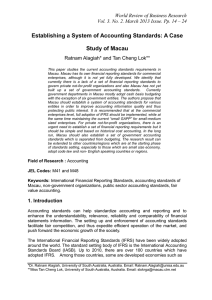Chapter 14
advertisement
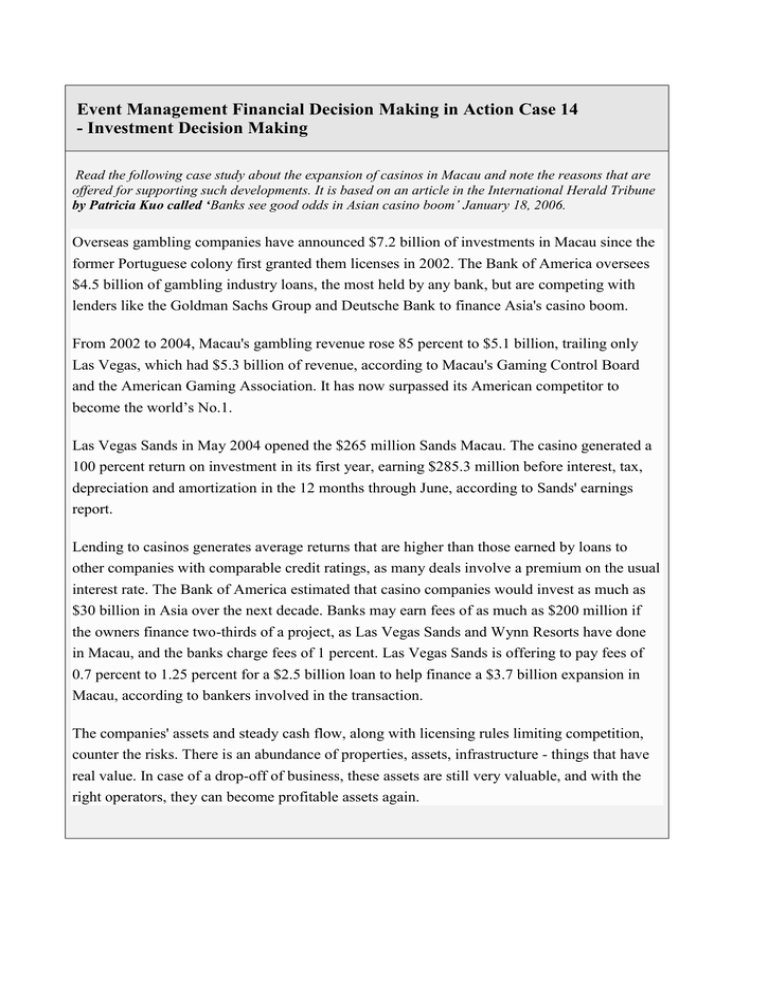
Event Management Financial Decision Making in Action Case 14 - Investment Decision Making Read the following case study about the expansion of casinos in Macau and note the reasons that are offered for supporting such developments. It is based on an article in the International Herald Tribune by Patricia Kuo called ‘Banks see good odds in Asian casino boom’ January 18, 2006. Overseas gambling companies have announced $7.2 billion of investments in Macau since the former Portuguese colony first granted them licenses in 2002. The Bank of America oversees $4.5 billion of gambling industry loans, the most held by any bank, but are competing with lenders like the Goldman Sachs Group and Deutsche Bank to finance Asia's casino boom. From 2002 to 2004, Macau's gambling revenue rose 85 percent to $5.1 billion, trailing only Las Vegas, which had $5.3 billion of revenue, according to Macau's Gaming Control Board and the American Gaming Association. It has now surpassed its American competitor to become the world’s No.1. Las Vegas Sands in May 2004 opened the $265 million Sands Macau. The casino generated a 100 percent return on investment in its first year, earning $285.3 million before interest, tax, depreciation and amortization in the 12 months through June, according to Sands' earnings report. Lending to casinos generates average returns that are higher than those earned by loans to other companies with comparable credit ratings, as many deals involve a premium on the usual interest rate. The Bank of America estimated that casino companies would invest as much as $30 billion in Asia over the next decade. Banks may earn fees of as much as $200 million if the owners finance two-thirds of a project, as Las Vegas Sands and Wynn Resorts have done in Macau, and the banks charge fees of 1 percent. Las Vegas Sands is offering to pay fees of 0.7 percent to 1.25 percent for a $2.5 billion loan to help finance a $3.7 billion expansion in Macau, according to bankers involved in the transaction. The companies' assets and steady cash flow, along with licensing rules limiting competition, counter the risks. There is an abundance of properties, assets, infrastructure - things that have real value. In case of a drop-off of business, these assets are still very valuable, and with the right operators, they can become profitable assets again.
